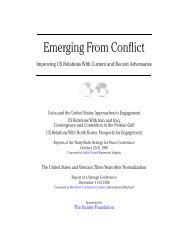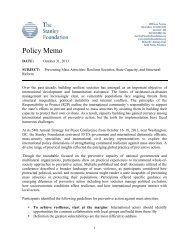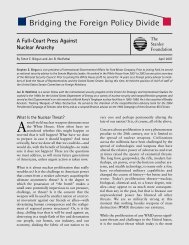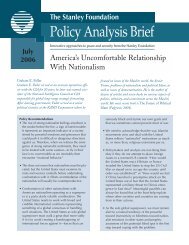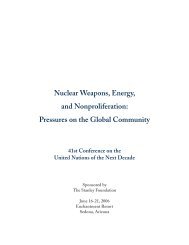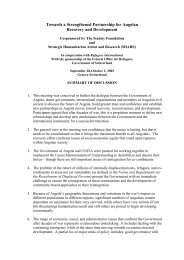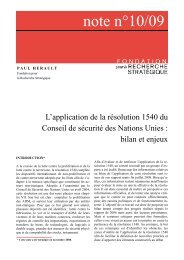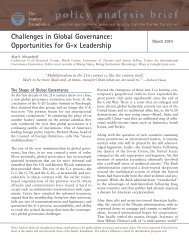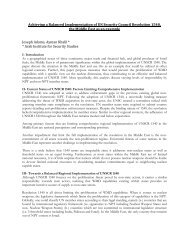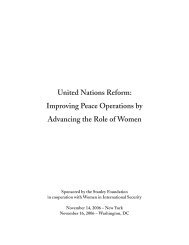444 By Susan Ariel Aaronson and David Deese With a reaction by ...
444 By Susan Ariel Aaronson and David Deese With a reaction by ...
444 By Susan Ariel Aaronson and David Deese With a reaction by ...
- No tags were found...
You also want an ePaper? Increase the reach of your titles
YUMPU automatically turns print PDFs into web optimized ePapers that Google loves.
EITI. As noted above, EITI does not actually require its supporting firms to disclose alltheir operations everywhere.Moreover, EITI alone is insufficient to help these countries prevent the resourcecurse. In several EITI implementing countries, civil society is often nonexistent, poorlyorganized or ineffectual. The individuals staffing NGOs in the developing world maylack the education, organizational <strong>and</strong> dissemination skills, <strong>and</strong> political savvy to use theinformation provided under EITI to change their governments’ behavior. But corporatesupporters of EITI have been reluctant to support changes to EITI obligations.185Going the Way of the Dinosaurs?This essay examined the big five international oil companies as proxies to discusshow corporations respond to the challenges of “responsible stakeholdership.” We began<strong>by</strong> noting how difficult it is for any firm to consistently act as responsible stakeholders;<strong>and</strong> it is particularly challenging for oil <strong>and</strong> gas companies which are limited as to wherethey can drill for oil <strong>and</strong> gas. We described the oil companies as hugely profitablebehemoths, confronted with dramatically changing market conditions. We also noted thatthe oil companies have unique operating conditions; they are often the largest <strong>and</strong>/or onlyinvestor in nations where they operate <strong>and</strong> bear extreme financial <strong>and</strong> political risk.These firms also shoulder a range of different responsibilities: including providingenergy; investing in alternative sources of supply; not undermining global norms for theenvironment <strong>and</strong> human rights. If managed with sensitivity towards these responsibilities,their operations could help advance human rights, cap harmful emissions, <strong>and</strong> stimulateeconomic growth—yet the record often reveals the opposite. Oil companies have indeedearned their reputation as socially <strong>and</strong> environmentally irresponsible. These firms have at465



